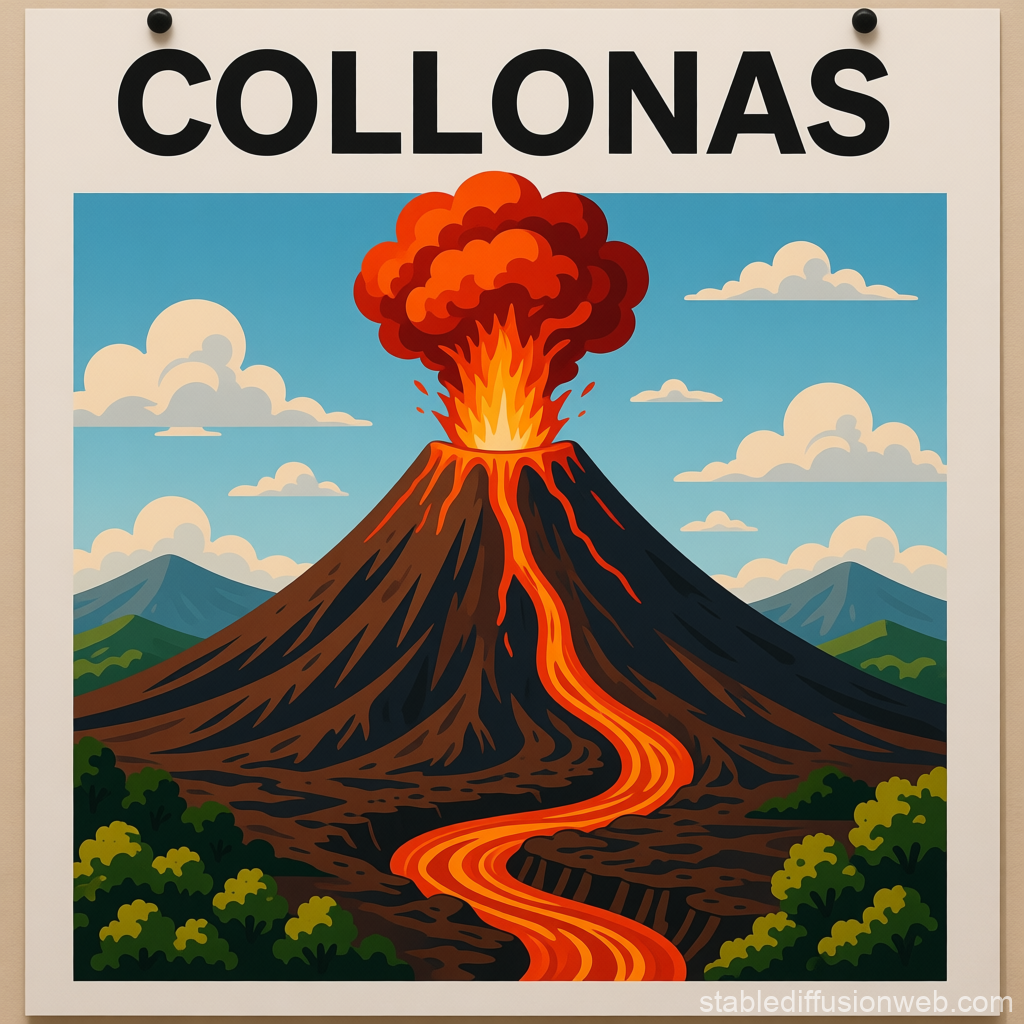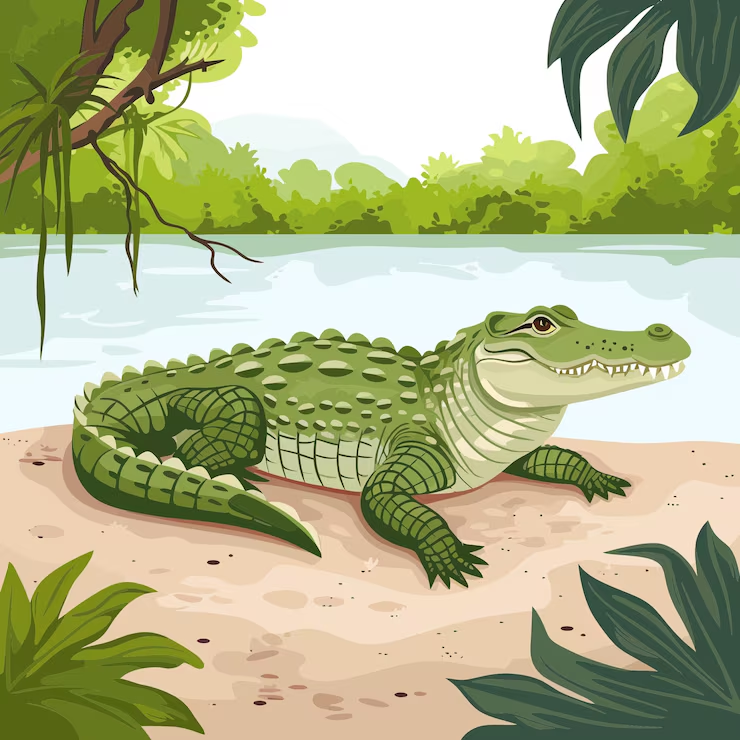Erica: Hey, Ian. How far along are you on preparing the presentation on volcanoes next week?
Ian: Not much.
Erica: Maybe we can straighten things out first?
Ian: Sure. I decided to start with shield Volcano. The name derives from its similarity in shape to a warrior's shield lying face up. 1The Hawaiian shield volcanoes are the most famous examples. Professor Joan mentioned that many scholars have already done quite a lot of research in this field. We could retell conclusions from published papers.
Erica: I'm not sure. I mean, is that even allowed? I know we don't have to use first hand data we collect, but copy in others?
Ian: Come on. It's not like we are using their findings as our own. The professor said it would be okay as long as we cited our sources.
Erica: Oh, okay.
Ian: Do you have any ideas about stratovolcanoes?
Erica: 2Stratovolcanoes, also known as composite volcanoes, develop over many thousands of years through repeated eruptions and other volcanic activity. But the current information I have at hand is only very vague. Fuller descriptions are needed for this.
Ian: I'm sure you can find them.
Erica: Alright then. Leave that to me. Have you read anything about rhyolite caldera complexes?
Ian: Yeah. They are the most explosive volcanoes on Earth and don't even look like volcanoes. The origin of these volcanoes, like Yellowstone, is associated with a hot spot.
Erica: 3You've got most of the information correct. Unfortunately, the last bit you mentioned is wrong. The origin of this type of volcano remains a mystery. The hot spot origin theory doesn't work for most other rhyolite calderas.
Ian: Right. I'll change that part. What about the position on monogenetic fields?
Erica: It's shocking to see the photos of these immense volcanoes. 4There are numerous monogenetic fields in the American Southwest and Mexico, but I got all the information from a website without specifying its source. We'll have to examine the content again later.
Ian: Okay. I can help with that.
Erica: 5Lastly, we have cinder cones. What do you have on that?
Ian: Well, this type of volcano is usually tiny to the other volcanoes and thus sounds less attractive. 5Maybe we should leave it out. It seems pretty unimportant to me.
Erica: I agree. It's impossible to cover everything.
Ian: Erica, can you work on the delivery part? I don't want to do it anymore.
Erica: I'm okay with that, but why is that?
Ian: I was marked so low for the last presentation and didn't even have a clue why. Maybe it's because I didn't include enough data on it.
Erica: Well, I'm not sure about that. 6I think maybe you did not prepare the topic well enough. You tried to explain the contributing factor forming the ring of fire in the Pacific Ocean, but you just read everything out loud without fully comprehending it yourself.
Ian: Right. That must have been it.
Erica: We also have to look for supporting materials to illustrate the formation of different volcanoes.
Ian: What about documentaries?
Erica: They can be an excellent way to illustrate the volcanic eruption, but that might be too long for our presentation. We've only got twenty minutes.
Ian: Have you considered adding photos to our handouts?
Erica: That's an option. But people may focus on these photos rather than paying attention to what we have to say. 7Maybe we can search online for part of a film about volcanoes and add it to the end of our presentation.
Ian: That would be better. So how should we start our presentation?
Erica: {[Maybe we can first introduce some terms like extinct volcanoes and dormant volcanoes.
Ian: Why is that?.][8]}
Erica: 8Even though they are widely accepted terms among ordinary people, academia wouldn't accept them because there are no set definitions. For example, an extinct volcano would be one nobody expects to erupt again, but there have been several eruptions from widely acknowledged extinct volcanoes.
Ian: That's an excellent way to start our presentation. What did the professor say about Erica's last presentation?
Erica: 9There is still room for improvement. She said that I had an in-depth analysis and provided enough statistics, but I didn't carry on and discuss my take on it.
Ian: Right. So maybe we could also discuss the impact volcanoes have on humans and our planet.
Erica: Yeah. There's little doubt that volcanoes have been instrumental in wiping out countless species during major extinction events. But volcanic activity also shapes new habitats, enriching the soil with nutrients that allow life to thrive. 10People haven't realized that there are abundant mineral resources waiting to be exploited in volcanoes.
Ian: I agree. So now we can...

![[Forecast Q2-2025] - Biology lecture](https://static.helik.app/reading/8fd3d7d2-ccf9-47a3-8920-2e7a3b0d6607)
![[Forecast Q2-2025] - Living in the City](https://static.helik.app/reading/1a60bcf3-f3a7-4e9b-97a2-94d156a0de3b)
![[Forecast Q2-2025] - Student Union](https://static.helik.app/reading/fb443123-8c1d-447e-8c79-5a01650f4754)
![[Forecast Q2-2025] - Fruit-picking Job in an Orchard](https://static.helik.app/reading/e1968346-6c55-44ae-b8d3-f6a4fb7207b9)
![[Forecast Q2-2025] - University Crime Prevention](https://static.helik.app/reading/bdda593e-16d6-4c72-8a12-b116e917b27c)
![[Forecast Q2-2025] - Business Course](https://static.helik.app/reading/3308e282-99a6-4bcb-9d22-0b488701d968)
![[C20T1] - Choosing a restaurant](https://static.helik.app/reading/e9b21123-c43c-42fb-88b7-5d0be3a37e03)
